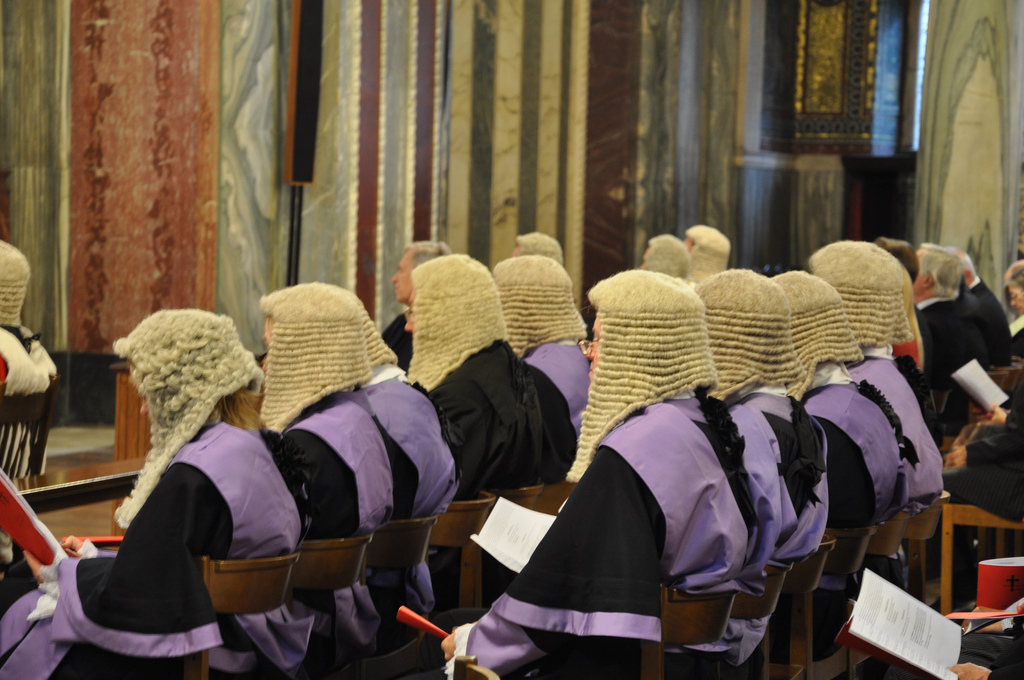
Judicial Precedent in Judicial Practice
May 7, 2013
The Right of Sovereign Equality
May 14, 2013Sexual Offences Prevention Orders (SOPOs) are a type of civil order. SOPOs were introduced in their current manifestation by section 104 of the Sexual Offences Act (SOA) 2003. Prior to this, there had been similar orders available to the courts under section 5 of the Sexual Offenders Act 1997.
A SOPO can prohibit the defendant from doing anything outlined in the order. This is what is considered ‘necessary to protect the public from serious sexual harm by the defendant.’ SOPOs cannot compel an individual to do something, they can only state that an individual must not do something. SOPOs are therefore entirely prohibitive in nature.
SOPOs can be imposed either at the time of conviction or post-conviction if an application for such an order is made.
What is the purpose of a SOPO?
The purpose of a SOPO is to protect the public or specific individuals from serious sexual harm by the defendant. The test, therefore, is as follows: is it necessary to impose a SOPO in order to protect the public or particular members of the public from serious sexual harm from the defendant?
Section 106(3) SOA 2003 gives guidance as to what falls within the meaning of ‘serious sexual harm’, stipulating that it covers:
serious physical or psychological harm, caused by the defendant committing one or more of the offences listed in Schedule 3.
Schedule 3 contains quite a considerable number of offences, including intercourse with a girl under 13 and various offences involving indecent photographs of children.
Who can be subject to a SOPO?
A SOPO can only be imposed against a person convicted of certain offences. The offences which carry the potential of the imposition of a SOPO are those contained in Schedules 3 and 5 of the SOA 2003. As explained above, Schedule 3 lists specified sexual offences. On the other hand, Schedule 5 is not limited to sexual offences and includes various offences of homicide, kidnap and certain offences against the person. Whether the offence is sexual or not in nature, the test for the imposition of a SOPO remains the same: it must be necessary to protect the public or particular members of the public from serious sexual harm on the part of the defendant.
What can a SOPO prohibit?
A SOPO may include the following sorts of clauses:
- The defendant must not associate with, or approach by any means, any person under the age of 18 years, except an authorised person;
- The defendant must not loiter in the vicinity of any children’s playground;
- The defendant must not enter or loiter in the vicinity of any school, college or university except with the written permission of the Chief Constable of the area in which he resides.
What is the procedure for an application for a SOPO?
After the defendant has been convicted, the chief police officer for the area in which the offender resides may make an application to a Magistrates’ Court for the order. The application may only be made if the defendant has behaved in such a way as to give ‘reasonable cause to believe that it is necessary for such an order to be made’ (section 104(5)(b) SOA 2003). Whilst in order to be liable for a SOPO the individual in question must have been convicted of an offence in either Schedule 3 or 5, the conduct which causes the police officer to reasonably believe that it is necessary for a SOPO to be made does not necessarily have to be criminal conduct. In essence, there are two elements to the imposition of a SOPO:
- The offender must be a qualifying offender (i.e. convicted of a Schedule 3 or 5 offence), and;
- The offender must have behaved in such a way as to give reasonable cause to believe a SOPO is necessary.
How long can a SOPO last for?
A SOPO must last for a fixed period. The period must not be less than five years. The period could be for life.
Can an individual be subject to multiple SOPOs at the same time?
No. Only one SOPO can have effect at any given time. If an individual is already subject to a SOPO and a further order is subsequently made, the earlier order ceases to have effect and is replaced by the second order.
Can an individual be liable to a SOPO even if he or she is subject to sex offender notification requirements?
Yes. Sex offenders have to register their details with the police. The offences which ‘trigger’ the obligation of a sex offender to notify the police of his details are those listed in Schedule 3. For some of these offences, registration is mandatory. However, for others, registration is conditional. For example, the offence of rape carries an absolute requirement to register. The offence of sexual assault, however, carries a conditional requirement to register. In any event, SOPOs operate alongside any requirement to register.
Can an offender appeal the imposition of a SOPO?
Yes. If the SOPO was imposed by magistrates the defendant can appeal to the Crown Court against the making of the order. For orders made in the Crown Court, the defendant may appeal to the Court of Appeal.
What happens if an offender breaches the SOPO?
If an individual breaches the conditions of his SOPO without reasonable excuse, he has committed an offence and is therefore liable to criminal prosecution. It is an either-way offence, and the maximum penalty if he should be convicted on indictment is custody for 5 years.





